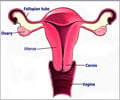Could a sports teams learn something from the manufacturing industry?

"Flexibility is important because it provides a team with options and allows a team to field a good line-up even if some players are injured," said Chan, an engineering professor at U of T.
They compared this flexibility with that of automotive manufacturing networks that help companies continue to operate efficiently even when changes occur in supply and demand. Similarly, they say, a baseball team wants to keep winning games if players are injured.
Chan and Fearing presented their insights at the 2013 MIT Sloan Sports Analytics Conference, where their paper, "The value of flexibility in baseball roster construction," took first place.
Chan's primary focus is operations research in health care. However, he is enthusiastic about using the tools from that research to study sports.
"The mathematical tools I develop to solve healthcare engineering problems have broad application in other domains. It is exciting to be able to combine my interest in sports with my methodological research."
They are developing a novel classification system for junior hockey players using advanced mathematical methods, in order to find patterns in performance data that may be otherwise hard to detect. The proposed project represents the first effort to analyze junior hockey players, using similar mathematical models that he developed for the NHL.
Source-Eurekalert
 MEDINDIA
MEDINDIA




 Email
Email






